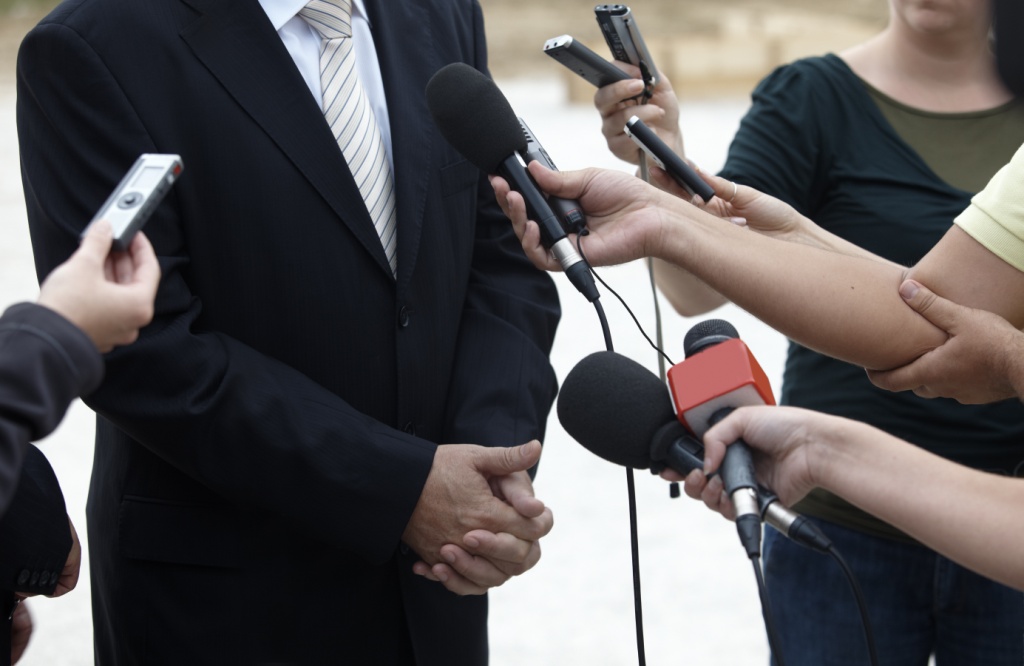Fleur Revell : Why You Need Media Training 101
According to reporter and news journalist Fleur Revell, media training is a useful tool for businesses to offer their employees as it provides valuable instruction on how to interact with journalists and potentially help staff secure positive publicity for the organisation or company they work for. Taking suitable staff through a media training 101 course in advance acts as a brand’s insurance against potentially damaging media attention when disaster strikes. It also makes sure they are ready to captilise on media opportunities when they arise.
It is important for any organisation engaging a media trainer to first identify those employees who are best suited for a key spokesperson role. Usually employees given the task of speaking in media interviews are key management personnel or work in the marketing, finance or human resources departments.
Face It – Media Interviews are not for Everyone
It’s important to also note that not everyone, despite their company position, will be suitable to assume the company face for interviews with journalists. If staff are particularly shy, have a light or quiet voice, or other unique traits that may impair their performance these people should not be utilised in a spokespersons role.
Fleur believes that in essence media training is designed to help companies increase the volume and accuracy of publicity or media coverage they receive. Given the right media training company managers are able to communicate the businesses key messages to journalists and ultimately the publics they want to reach.
From the outset a good media trainer should work with the interviewee on the key messages they wish to communicate for any given interview.
They should also provide them with a selection of questions and answers about the given topic they are to be interviewed on and have them practice weaving the key messages into their verbal responses.
According to Fleur Revell, it is important that these questions provide a basis for interview practice but are not memorised. A nervous client will often want to memorise these verbatim, a terrible habit to get into, should the journalist ask them something outside what they have prepared and leave them reeling.
Journalists Don’t Want Your Life Story
There is also a temptation for clients to have a list as long as your arm of key messages they wish to convey during any given interview. This simply will not do. Fleur says – I tell them this is not the time to launch into a soliloquy of Shakespearean proportions, rather it is the chance to tell the journalist and their audiences about their business in a concise way.
“As a former journalist I’m all too familiar with how maddening it can be when you are on a tight deadline, only to have an interviewee veer off topic or worse blatantly try to use the interview as a free advertisement.” – Fleur Revell
A good rule of thumb is to have no more than three key messages (unless there is a crisis situation and more on that in my next blog).
While you may think your business or company or in fact you (if it’s a profile story) is the most interesting event since man walked on the moon, you are wrong.
Yes we want to hear about your business, but space is tight and we have no time and few resources so you need to tell us quickly and succinctly.
Keep It Brief
According to Fleur Revell, there is no room for more than three key messages for the following reasons:
1) Journalists are not writing or broadcasting a free advert – be grateful if you get one key message in, and do cartwheels if you wrangle more than that!
2) You will over-prepare and panic. You will be so focused on presenting the 6 or 7 key messages you do have that you will pay no attention to how you’re actually delivering the material, and often you forget the most basic message as you’re trying to remember the rest.
3) Think about the length of the average radio or television broadcast interviews they want a quick snippet off you, that’s all.
What To Wear for Media Interviews
Fleur says often the first things clients will ask when preparing for an interview (men are actually the worst offenders) is what they should wear!
Fleur will go into detail on this in one of my next blogs, but in essence it’s important that you think about what you’re saying and how you’re saying it, before you worry about the colour of your shirt.
You can have all of the information you need at your fingertips, the perfect response to a reporter’s difficult or technical question, but if you can’t deliver it in a compelling and interesting way, then you are likely to get cut. This is particularly true for broadcast interviews – Fleur Revell
Similarly, says Fleur Revell, if you are conducting a print interview with a newspaper/magazine or online journalist and you do not answer the questions concisely and in layman’s terms you make it difficult for a journalist on deadline to distill your information into a few short quotes.
Providing interesting, up-to-date and honest information to the journalist goes a long way to developing an on-going relationship with a reporter, who may come back to you again to comment on your industry.
Fleur Revell’s Media Training Tips
Here are some of the tips Fleur tells her clients:
1) Do not over prepare, enjoy it. This is a chance for you to tell your customers about your product or service.
2) Don’t get so bogged down in the information you lose the excitement and passion for what you’re talking about, make us want to hear more from you.
3) Be honest, always. If you can’t speak the truth do not do the interview
4) Nothing is off the record, ever.
5) Do not make negative comments about competitors businesses.

Leave a Reply